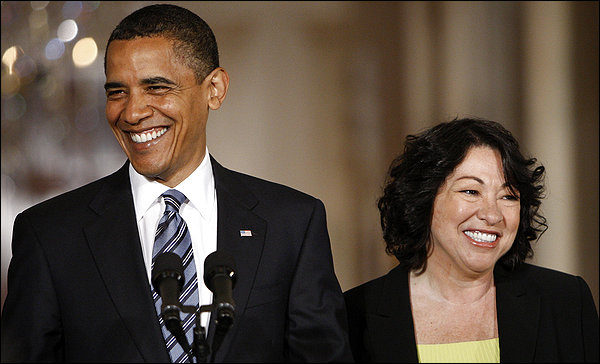“How absurd is that? Let us count the ways. First, even when the most establishment ‘journalists’ such as Rosen get caught engaging in patently irresponsible behavior, they still find a way to blame blogs rather than themselves (I thought I was just blogging, and reckless gossip is what bloggers do.) It wasn’t blogs that “reported” Saddam Hussein’s acquisition of scary aluminum tubes for nuclear weapons or that Iraq was behind the anthrax attacks; it wasn’t blogs that glorified Jessica Lynch’s nonexistent heroic firefight with Iraqi goons; it wasn’t blogs that turned John Edwards into The Breck Girl and John Kerry into a “French-looking” weakling; and it wasn’t blogs that presented retired military generals who were participating in a Pentagon propaganda program and saddled with countless undisclosed conflicts as ‘independent analysts.’“
Call it the State of Play fallacy: After TNR’s Jeffrey Rosen blames “blogging” for the obviously poor quality of his recent Sotomayor hit piece — and vows never to blog again — Salon‘s inimitable Glenn Greenwald sets the record straight about what can and can’t be pinned on bloggers. “Despite his efforts to blame ‘blogging’ for what he did, Rosen didn’t use journalistically reckless methods to smear Sotomayor’s intellect because of some inherent attribute of the medium. Instead, he did that because…that’s how the establishment media typically functions: ‘background reporting from people with various axes to grind, i.e. standard Washington reporting.’” (And, for what it’s worth, Rosen’s original article was hardly what you’d call blogging anyway — it was just a lengthy piece that ran online.)

